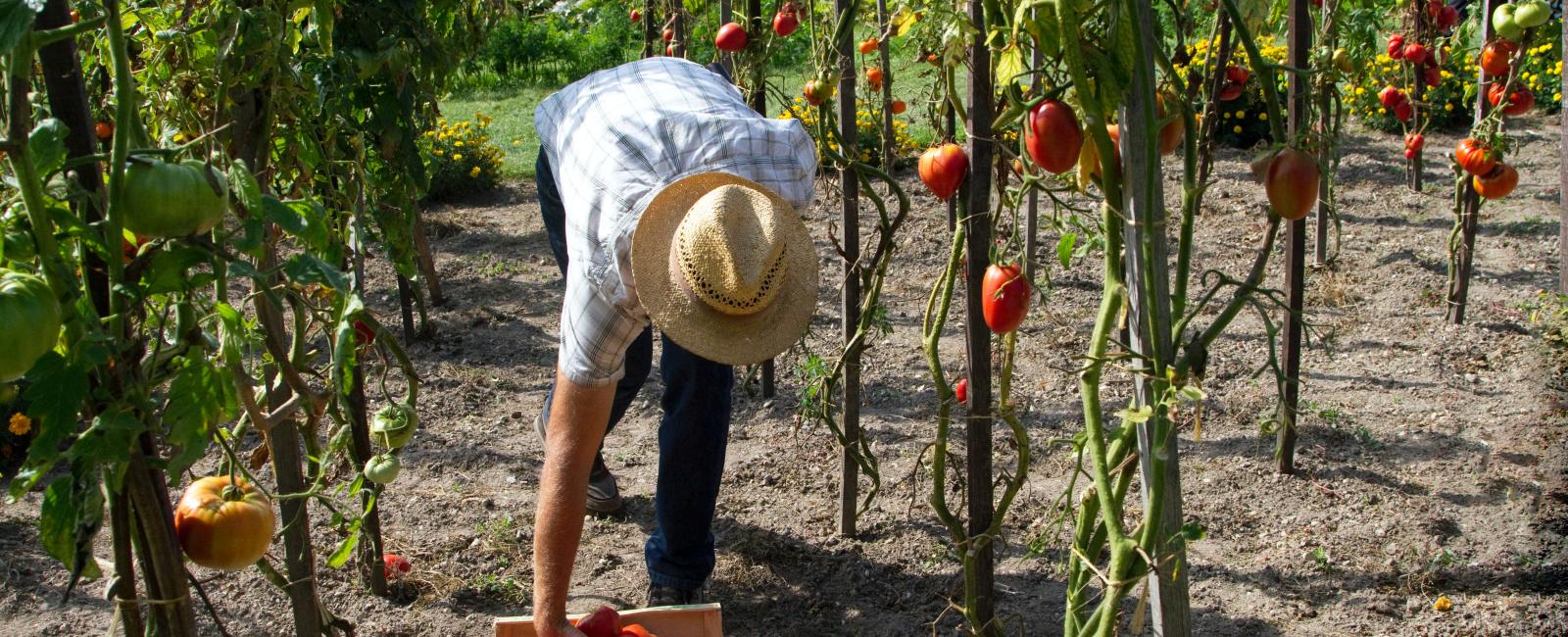Why Is Eating Organic Important, Again? Here's A Quick Recap

Healthy soils are alive, teaming with life and nutrients. Living soils nourish crops which in turn nourish animals and people. Quality soil equals quality food! But what does living soil look like? And how does organic farming depend on keeping it alive? Let’s find out.
A Whole World Under Your Feet
 The soil is home to many living beings from beneficial bacteria and fungi to earthworms and moles. These animals transform plant debris into useful nutrients for plants.
The soil is home to many living beings from beneficial bacteria and fungi to earthworms and moles. These animals transform plant debris into useful nutrients for plants.
The rhizobia bacteria deserves an honourable mention here. This bacteria has formed a special alliance with legumes. Some well-known examples of legumes include chickpeas, lentils, peas, soybeans and even peanuts. Non-legume plants rely on nutrients to be fixed in the soil. However, legumes use rhizobia bacteria to get nutrients. The bacteria live in small nodules on the plant. The bacteria give the plant nutrients and the plant returns the favour by feeding the rhizobia delicious sugar.
Traditional farms use chemical fertilizers to feed the plants. Sadly, these harsh chemicals entail high costs, lots of extra work, and the death of the rich soil life, which necessitates using even more chemicals.
Organic farms keep the soil fertile with compost and animal manure. So, no harmful synthetic chemicals! The soil stays alive and thriving, making the soil fertile naturally. The result? Less work for the farmer, and healthy food for us!
Water Sponge
Healthy crops have deep roots making the soil airy and less compact. Earthworms also contribute and are “nature’s plough”, active in turning, mixing, and aerating the soil. When it rains the “fluffy” soil absorbs the water like a dried-up sponge! This is very important to avoid water loss and floods.
Organic farming keeps the soils “spongy” which also means the soil is much more resistant to droughts. And with climate change looming over our heads, this is more important than ever before.
Go For The Strong Cultivars
 What sounds more logical: select weak plant crop variants and drench them with pesticides and herbicides…or go for the strongest plants and let them fend for themselves without needing harmful chemicals. The answer is pretty straightforward: use the strong and low-maintenance variants.
What sounds more logical: select weak plant crop variants and drench them with pesticides and herbicides…or go for the strongest plants and let them fend for themselves without needing harmful chemicals. The answer is pretty straightforward: use the strong and low-maintenance variants.
Organic farmers think so too. That is why they farm only the strongest crop species able to resist pests without the need for chemicals. This in turn keeps beneficial organisms alive, which also helps fight off pests. For example, ladybugs eat plant lice. Win-win for everyone (except the lice, of course)!
CO₂ Sink
The rich soil life on organic farms converts plant residues into humus (not the kind you eat with falafel). Humus is a very nutrient-rich organic matter that makes the soil resistant to drought and erosion.
Humus helps slow down climate change by a lot. In fact, next to the oceans, the soil is the largest carbon storage on our planet! Let’s keep it that way by supporting organic farms.
It Tastes Better
If all of the above is not reason enough to celebrate organic farming, the fact that the food is healthier and tastier might do it.
The study also showed that more antioxidants lead to better aroma, taste and texture. Overly fast-growing non-organic fruits and veg lack flavour-producing, healthful antioxidants. Organic wins hands down!
Future-Proof Foodie Challenge
Join our Future-Proof Foodie challenge together with Ekomenu. Get started for free with tips from our experts, tasty recipes and a community of enthusiastic participants.
Download the app, sign up and receive a temporary 50% discount on your first organic meal box!
Then follow this link from your mobile to join the challenge.


